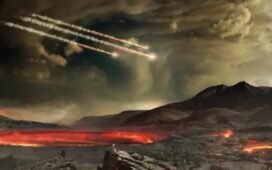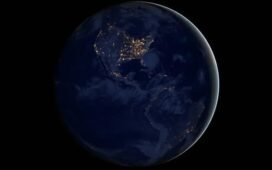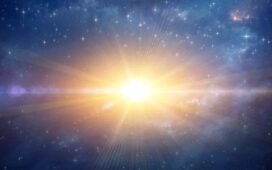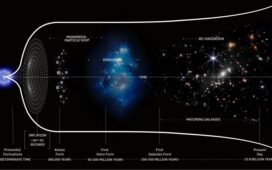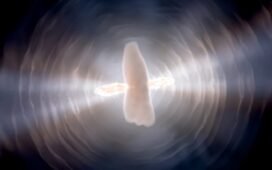Since 1998, we’ve known our Universe isn’t just expanding, but the expansion is accelerating. Could the Big Bang itself be the reason why?
Ever since the late 1990s, astrophysics has had a big puzzle to reckon with: one that still remains unsolved. When we try to solve Einstein’s field equations for General Relativity as they apply to our actual Universe — our Universe that, on large scales, is both isotropic, or the same in all directions, and homogeneous, or the same in all locations — we find that there’s a specific relationship between two things:
- the rate of the expansion of space, as well as how that rate changes over time,
- and the full suite of “stuff” that’s present within the Universe: matter, radiation, and any and all other forms of energy.
It was only in the late 1990s that we finally measured the expansion rate, and its change over time, well enough to conclude what type of “stuff” was present in the Universe, and what we found was shocking. While about ~30% of the Universe could be in the form of matter, the majority of it, around ~70%, was neither consistent with matter nor radiation. It needed to behave very differently: as a new form of energy.


